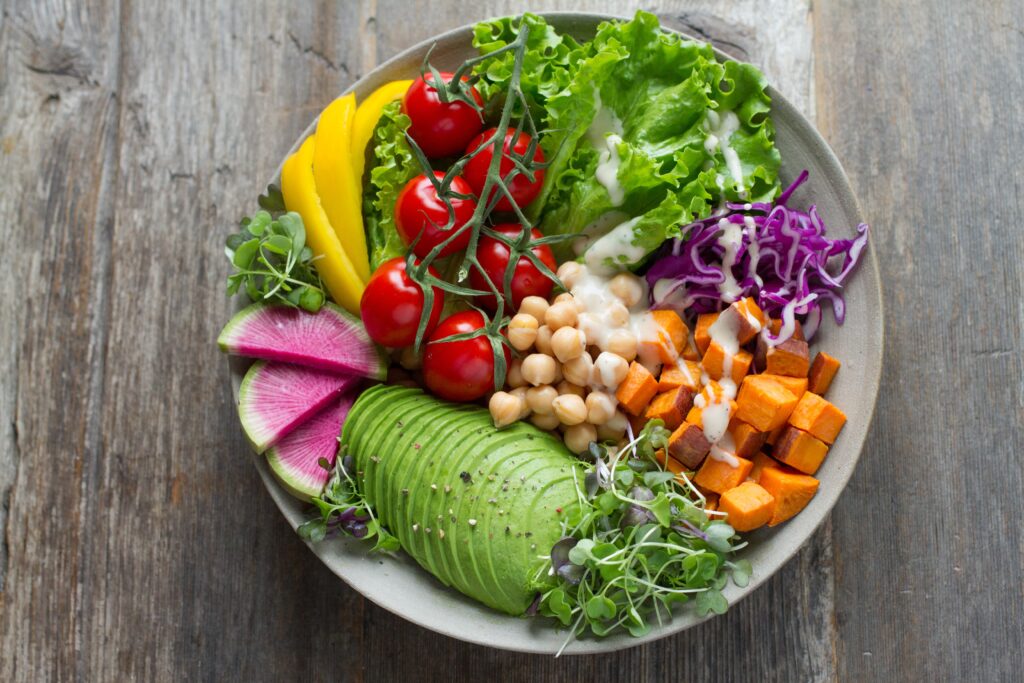Frozen fruits and vegetables often get a bad reputation for being processed and lacking in nutrients. However, there are several compelling reasons why including frozen fruits and veggies in your diet can actually be a healthy choice. First, frozen produce is picked at the peak of ripeness, ensuring that it is chock full of vitamins, minerals, and antioxidants. Additionally, research has shown that frozen produce can be just as, if not more, nutritious than fresh produce. Freezing actually “locks in” many of the nutrients. Furthermore, frozen fruits and veggies are often additive-free, making it easy to find options with minimal ingredients. They also serve as healthy shortcuts, as they require little to no preparation time. Lastly, frozen produce is incredibly versatile and can be used in a variety of dishes. By stocking up on frozen fruits and veggies, you can have nutritious and convenient options at your fingertips.
Reasons Why Frozen Fruits and Veggies are Worth Buying

Reason 1: Frozen Fruits and Veggies are Nutrient Rich
When it comes to nutrition, frozen fruits and vegetables are a reliable choice. These frozen options are picked at their peak of ripeness, ensuring that they are mature and full of nutrients. The freezing process “locks in” many of the vitamins, minerals, and antioxidants that these fruits and vegetables contain. In fact, the Academy of Nutrition and Dietetics confirms that freezing does not significantly impact the nutrient content of these foods. This means that when you consume frozen fruits and veggies, you can still reap their health benefits.
Reason 2: Frozen Fruits and Veggies are Additive-free
One of the advantages of buying frozen fruits and vegetables is that they are typically free of unwanted additives. Unlike some processed foods, frozen produce does not require any additional preservatives or flavor enhancers to maintain their quality. Many frozen options have single-word ingredient lists, as they only contain the fruit or vegetable itself. When you choose frozen fruits and veggies, you can trust that you are consuming a wholesome and natural product.

Reason 3: Frozen Fruits and Veggies is a Super Healthy Shortcut
For those who lead busy lives, frozen fruits and veggies can be a game-changer in the kitchen. Since they are already washed, peeled, and chopped, there is no preparation work required. This convenience allows you to save time and effort when cooking and meal prepping. According to the US Department of Agriculture (USDA), the average American spends 37 minutes per day on food preparation and cleanup. By incorporating frozen produce into your meals, you can significantly reduce this time and still enjoy healthy and nutritious dishes.
Reason 4: Frozen Fruits and Veggies are Versatile
Frozen fruits and veggies offer endless possibilities in the kitchen. They can be used in a variety of ways to add flavor, texture, and nutritional value to your meals. For example, frozen fruit can be added to smoothies, thawed as a topping for oatmeal or toast, or even incorporated into baked goods. Frozen vegetables are excellent for stir-fry dishes, sautés, or as a side dish. With a stock of frozen produce, you can easily experiment with different recipes and create delicious and nutritious meals.

Reason 5: Frozen Fruits and Veggies are Convenient and Cost-Effective
One of the biggest advantages of frozen fruits and veggies is their convenience and cost-effectiveness. These products are readily available in most grocery stores and can be easily stored in your freezer for extended periods. This means that you can always have a supply of fruits and veggies on hand, even when they are out of season or not readily available fresh. Additionally, frozen produce tends to be more affordable than fresh options, making it a budget-friendly choice for those looking to incorporate more fruits and vegetables into their diet.
How to Incorporate Frozen Fruits and Veggies into Your Diet
Now that you know the benefits of frozen fruits and veggies, here are some easy and delicious ways to incorporate them into your diet:
Add to Smoothies:
Frozen fruit is a perfect addition to smoothies. Simply blend your favorite frozen fruits with some yogurt or milk for a refreshing and nutrient-packed beverage.
Use as Toppings or Sides:
Thawed frozen fruit can be used as a topping for oatmeal, yogurt, or whole grain toast. Similarly, frozen vegetables can be used as a side dish for your main meals or added to salads and wraps for an extra crunch.
Include in Stir-Fry Dishes:
Frozen veggies are a great addition to stir-fry dishes. They cook quickly and retain their color and texture, making them a convenient and nutritious choice for stir-fries.
Serve as a Quick and Easy Side Dish:
Frozen vegetables can be steamed or sautéed in a matter of minutes, making them a perfect quick and easy side dish for any meal.
How to Choose and Store Frozen Fruits and Veggies
To ensure that you are getting the best quality frozen fruits and veggies, keep the following tips in mind:
Look for Single-Ingredient Products:
When purchasing frozen fruits and vegetables, opt for products with single-word ingredient lists. This ensures that you are getting a pure and unadulterated product without any unnecessary additives.
Check for Proper Packaging and Seals:
Make sure that the packaging of the frozen fruits and vegetables is intact and tightly sealed. This ensures that the products have been properly preserved and reduces the risk of freezer burn or contamination.
Pay Attention to Expiry Dates:
Always check the expiry dates on the packaging to ensure that the frozen produce is still within its recommended consumption period. Consuming expired products may negatively affect their taste and quality.
Store at Recommended Temperatures:
To maintain the quality and safety of frozen fruits and veggies, store them at the recommended temperatures indicated on the packaging. Keeping them at the correct temperature ensures that they remain frozen and retain their nutrients.
How Frozen Fruits and Veggies Compare to Fresh
While fresh fruits and vegetables are often considered the gold standard, frozen options hold their own in several aspects. Here’s how frozen fruits and veggies compare to their fresh counterparts:
Nutrient Content and Quality:
Frozen fruits and veggies are just as nutritious, if not more so, than fresh produce. In some cases, frozen options can even surpass fresh ones in terms of nutrient content. The freezing process “locks in” the nutrients and prevents significant nutrient loss over time.
Convenience and Availability:
Frozen fruits and vegetables are incredibly convenient and available throughout the year. They are always in stock and can be easily accessed, regardless of the season. Fresh produce, on the other hand, may be limited in availability and may require more frequent trips to the grocery store.
Cost:
Frozen fruits and veggies are often more cost-effective than their fresh counterparts. They can be purchased in bulk and stored for longer periods, allowing you to take advantage of sales or discounts. Fresh produce, especially when out of season, tends to be more expensive and may have limited shelf life.
Potential Downsides of Frozen Fruits and Veggies
While frozen fruits and veggies offer numerous health benefits, there are a few potential downsides to be aware of:
Possible Loss of Texture:
Freezing can affect the texture of certain fruits and vegetables. Some fruits may become slightly mushy when thawed, while certain veggies may lose their crispness. However, this is a minor trade-off for the extended shelf life and convenience that frozen produce offers.
Preparation Techniques Matter:
While frozen fruits and veggies require minimal preparation, it is essential to use proper cooking techniques to preserve their taste and texture. Overcooking or improper cooking methods can lead to a loss of quality in terms of flavor and texture.
Lower Antioxidant Content in Some Cases:
In certain cases, frozen fruits and vegetables may have slightly lower antioxidant levels compared to fresh ones. However, the difference in antioxidant content is generally minimal and should not deter you from enjoying the benefits of frozen produce.
Conclusion
In conclusion, frozen fruits and veggies are an excellent addition to a healthy diet. They are nutrient-rich, additive-free, and offer a range of benefits that make them worth buying. Whether you’re looking for convenience, cost-effectiveness, or versatility in your meals, frozen produce is a reliable choice. By incorporating frozen fruits and veggies into your diet, you can enjoy the health benefits they offer while saving time and effort in the kitchen. So stock up on frozen options today and discover the endless possibilities they bring to your meals.
